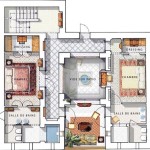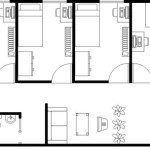Small Colonial House Plans: An Ode to Architectural Harmony
Small colonial house plans are a testament to the enduring charm of traditional American architecture. With their symmetrical facades, elegant proportions, and versatile interiors, these homes exude a timeless appeal that continues to resonate in modern times.
At the heart of colonial design lies a harmonious balance between form and function. The exterior features a central doorway flanked by symmetrical windows, creating a sense of symmetry and order. The roofline is often steeply pitched, with dormers adding both visual interest and practical functionality.
The interior of a small colonial house is characterized by open floor plans and flexible spaces. The living room, dining room, and kitchen flow seamlessly into one another, fostering a sense of spaciousness and communal living. Bedrooms are typically located on the upper level, providing a quiet and private retreat.
Classic Colonial Elements
Several classic elements define the quintessential colonial style:
* Symmetry: Balanced facades with symmetrical windows and doors * Steeply Pitched Roof: Often with dormers or gables * Detailed Trim: Intricate molding, cornices, and pediments * Central Chimney: A focal point and source of warmth in traditional homes * Brick or Clapboard Siding: Durable and aesthetically pleasing exterior materialsModern Adaptations
While traditional colonial house plans provide a timeless foundation, modern architects have introduced subtle adaptations to cater to contemporary lifestyles:
* Floor Plan Flexibility: Open floor plans with fewer walls and more adaptable spaces * Energy Efficiency: Improved insulation, energy-efficient windows, and sustainable materials * Updated Kitchens and Bathrooms: Modern amenities and appliances enhance functionality and style * Rear Porches or Decks: Outdoor living expansions for extended living spacesBenefits of Small Colonial House Plans
Small colonial house plans offer numerous advantages, including:
* Charming Aesthetics: Timeless architectural style with enduring appeal * Functional Interiors: Open floor plans and flexible spaces maximize space and comfort * Durability: Traditional materials like brick or clapboard provide longevity and low maintenance * Energy Efficiency: Modern adaptations can improve energy performance and reduce utility costs * Versatility: Adaptable floor plans can accommodate a variety of lifestyles and family sizesChoosing Small Colonial House Plans
When choosing a small colonial house plan, consider your specific needs and preferences:
* Number of Bedrooms and Bathrooms: Ensure the plan has enough bedrooms and bathrooms to meet your current and future needs * Floor Plan Layout: Determine the desired flow of spaces and make sure it aligns with your lifestyle * Exterior Appearance: Select a plan with a façade that complements your neighborhood and personal style * Lot Size and Orientation: The plan should fit comfortably on your building lot and take into account sunlight exposure and views * Budget and Building Timeline: Establish a realistic budget and determine if the plan meets your financial and time constraints
1920 National Plan Service Colonial House Plans Sims Vintage

1928 Home Builders Catalog The Dennard Colonial House Plans Vintage Floor

Plan 75553 Traditional Country Style Neighborhood House Wi

Modernize Colonial 1926 Universal Plan Service No 608 House Plans Portland Homes Oregon

1925 Colonial Revival Classic Home Two Story Bowes Co Hinsdale Il House Plans Beach Mediterranean

Colonial Floor Plan 4 Bedrms 5 Baths 3435 Sq Ft 102 1050
Small Colonial Cape Cod House Plan 2 3 Bedroom 1245 Sq Ft

Center Hall Colonial House Plan 44045td Architectural Designs Plans

Small Colonial House Plan 3 Bedrms 1422 Sq Ft 126 1341

1929 Two Story Brick House From Sears With Floor Plans Sims Blueprints Vintage








